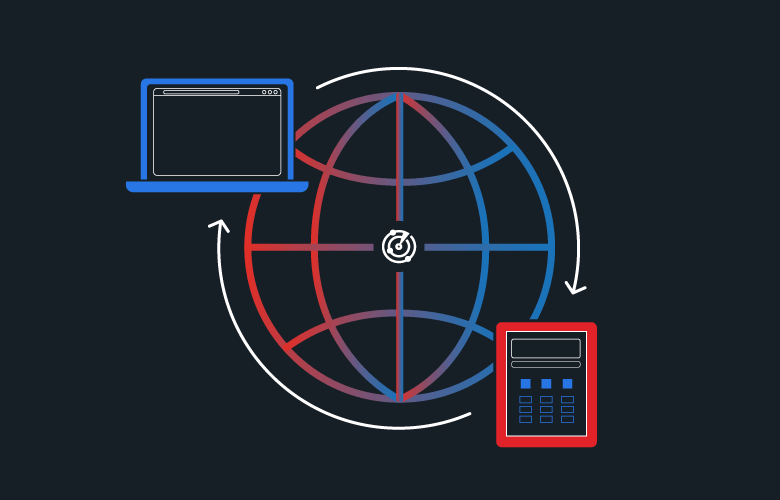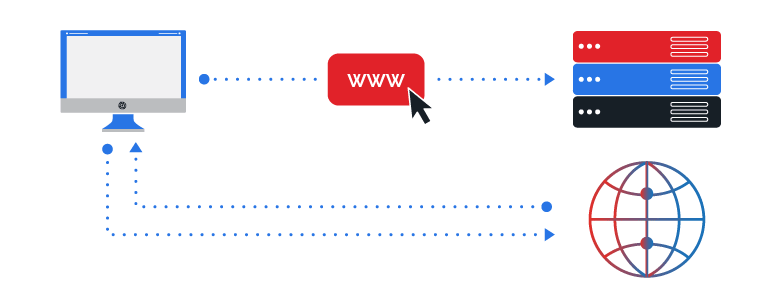March 20, 2022
Protect Your Online Privacy with a VPN
Virtual Private Network (VPN) technology has been around for a while, and it’s finally beginning [...]

WHAT’S IN THIS REVIEW?
Disclaimer: Partnerships & affiliate links help us create better content. Learn how.
Will the proposed European Union (EU) DNS resolver spell the end for torrenting and illegal streaming?
BitTorrent had a user base of 170 million people per month, and their site noted that the protocol accounted for nearly 40 percent of the world’s internet traffic. (Of course, current numbers are far lower, especially given services like Netflix and Spotify that offer an affordable paid alternative.)
A decade after the collapse of Megaupload, torrenting sites are still a primary target for regulators. Will file-sharing sites be blocked at the source, and what does DNS4EU aim to achieve?
AlwaysVPN does not support illegal torrenting. Torrents should only be used for legal file sharing and downloading.

A Domain Name System (DNS) is a protocol that helps you connect to websites with words instead of numbers. When an internet address is searched, DNS is used to automatically discover the Internet Protocol (IP) address for that website.
An IP address is a set of numbers that can change, which is harder to remember than a name or phrase. So, instead of remembering the numeric code for a domain, you can type AlwaysVPN.com, into a search bar. The same goes for all sites on the web.
For every domain name on the internet, there are one or more IP addresses. These can change at any time, but the domain name always stays the same. This means that a DNS resolver is an important piece of tech.
The DNS resolver is normally chosen by your internet service provider (ISP), but it can be changed by the user.
What’s all the fuss about? DNS4EU is a proposal to support:
“The deployment of a recursive European DNS resolver service infrastructure serving EU-based internet users in need of privacy-respecting and secure DNS resolution to access resources on the internet.”
DNS4EU
It’s posited as a method to improve online privacy thanks to “state-of-the-art protection against cybersecurity threats,” such as malware and phishing. It’ll be compliant with the EU General Data Protection Regulation (GDPR), and they aim to develop “federated and expandable service infrastructure with a diverse membership to maximize the footprint and customer base of DNS4EU across the EU, reduce costs through shared resources, and ensure the long-term sustainability of DNS4EU.”
The proposal would lessen the EU’s reliance on US infrastructure, as none of the pan-European providers are European-owned. (Current examples include Google, Oracle, Cloudflare, and OpenDNS.) This makes it difficult to ensure that they’re following EU rules in terms of privacy safeguards and regulations.
On the surface, it seems it would be helpful for the users within the EU, especially for improving overall security within the region.
Point 12 of the proposal is where it all goes a bit awry.
12. Lawful filtering: Filtering of URLs leading to illegal content based on legal requirements applicable in the EU or in national jurisdictions (e.g. based on court orders), in full compliance with EU rules.
After all, we don’t know how they would filter content, as it would affect internet providers in the region, who are likely to use the DNS resolver.
It would be dependent on any applicable court orders, which could lead to some sites being blocked for users.
For example, blocking torrent sites at the source via URL filtering could be the end of online file sharing. The concept of having to bypass government-run filters isn’t great from a user perspective, especially if sites end up being blocked when they shouldn’t be.
Of course, this is purely hypothetical, but it would be a shame if the proposal led to increased censorship.
A virtual private network (VPN) is a great way to improve online privacy and security.
Typically, smart DNS services replace the DNS address provided by your ISP with one for a different server. However, a VPN does the same thing, though with more functionality. (Smart DNS won’t encrypt your data, and it doesn’t change your IP address.)
We’ve selected three top VPN providers for torrenting that also include privacy features and abilities to unblock streaming services.
(After all, streaming services have replaced torrents for many former users, who prefer the accessibility and reliability of an app that does everything for you and even comes with suggestions.)
Our go-to service to bypass any DNS resolver issues would be NordVPN. NordVPN offers over 5,200 P2P-optimized global high-speed servers.
NordVPN provides the perfect mix of quality and affordability, outperforming almost every other service in terms of speed and security. For streaming, NordVPN works with Netflix and allows you to change your region and unblock additional content.
Surfshark is next on our list, thanks to the ability to support P2P sharing on 3,200+ servers, backed by AES 256-bit encryption, multi-hop protection, and a zero-logs policy.
As with NordVPN, Surfshark unblocks Netflix by using their “NoBorders” feature that bypasses net censorship in places like China and Iran.
It’ll handle any streaming needs, with extras including an advanced Smart DNS feature that allows users to unblock websites on all smart TVs and gaming consoles.
Last, but by no means least, CyberGhost is another premium VPN service that has a host of P2P servers to choose from.
CyberGhost also has dedicated VPN servers specifically for streaming, proudly advertising an extensive list of content libraries it can unblock, and it offers simultaneous connections on up to seven devices.
As with the other VPNs mentioned above, you can take advantage of a Smart DNS feature that allows users to unlock Netflix and other websites on all smart TVs, gaming consoles, and operating systems.
Would a proposed EU DNS resolver bring an end to torrenting and streaming illegal content for users in the region? Potentially, although it depends on what DNS4EU classifies as “illegal content”.
After all, what if the EU decides to ban anything from crypto mining to the use of VPNs? It depends on the extent of any potential block, although it doesn’t seem likely for now. You can always switch to another DNS resolver, and it’s unlikely that the EU will block access to those, too.
For now, it’s just a proposal. If put into action, the DNS resolver does potentially offer a variety of security and privacy benefits. However, many draconian laws originally set out to solve real-world problems turn into regulations that stray from the original remit.
It’s hard to see how any user would agree to government-led filters unless they only get rid of obvious scam sites and criminal activities.
| Cookie | Duration | Description |
|---|---|---|
| __cfduid | 1 month | The cookie is used by cdn services like CloudFlare to identify individual clients behind a shared IP address and apply security settings on a per-client basis. It does not correspond to any user ID in the web application and does not store any personally identifiable information. |
| cookielawinfo-checkbox-advertisement | 1 year | The cookie is set by GDPR cookie consent to record the user consent for the cookies in the category "Advertisement". |
| cookielawinfo-checkbox-analytics | 1 year | This cookies is set by GDPR Cookie Consent WordPress Plugin. The cookie is used to remember the user consent for the cookies under the category "Analytics". |
| cookielawinfo-checkbox-necessary | 1 year | This cookie is set by GDPR Cookie Consent plugin. The cookies is used to store the user consent for the cookies in the category "Necessary". |
| cookielawinfo-checkbox-non-necessary | 1 year | This cookie is set by GDPR Cookie Consent plugin. The cookies is used to store the user consent for the cookies in the category "Non-necessary". |
| cookielawinfo-checkbox-performance | 1 year | This cookie is set by GDPR Cookie Consent plugin. The cookie is used to store the user consent for the cookies in the category "Performance". |
| viewed_cookie_policy | 1 year | The cookie is set by the GDPR Cookie Consent plugin and is used to store whether or not user has consented to the use of cookies. It does not store any personal data. |
| Cookie | Duration | Description |
|---|---|---|
| cookielawinfo-checkbox-functional | 1 year | The cookie is set by GDPR cookie consent to record the user consent for the cookies in the category "Functional". |
| cookielawinfo-checkbox-others | 1 year | No description |